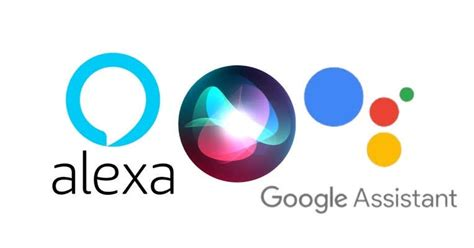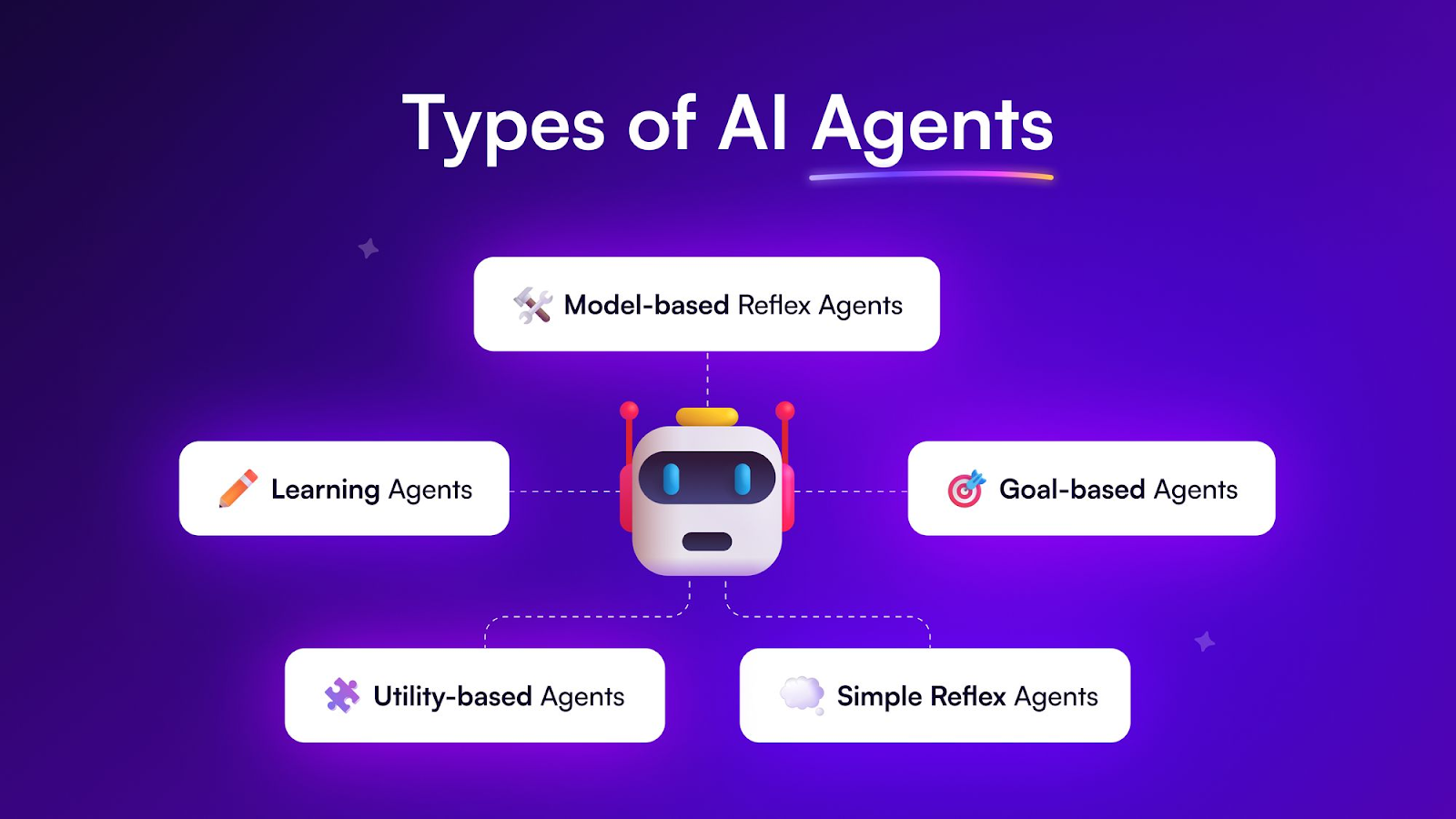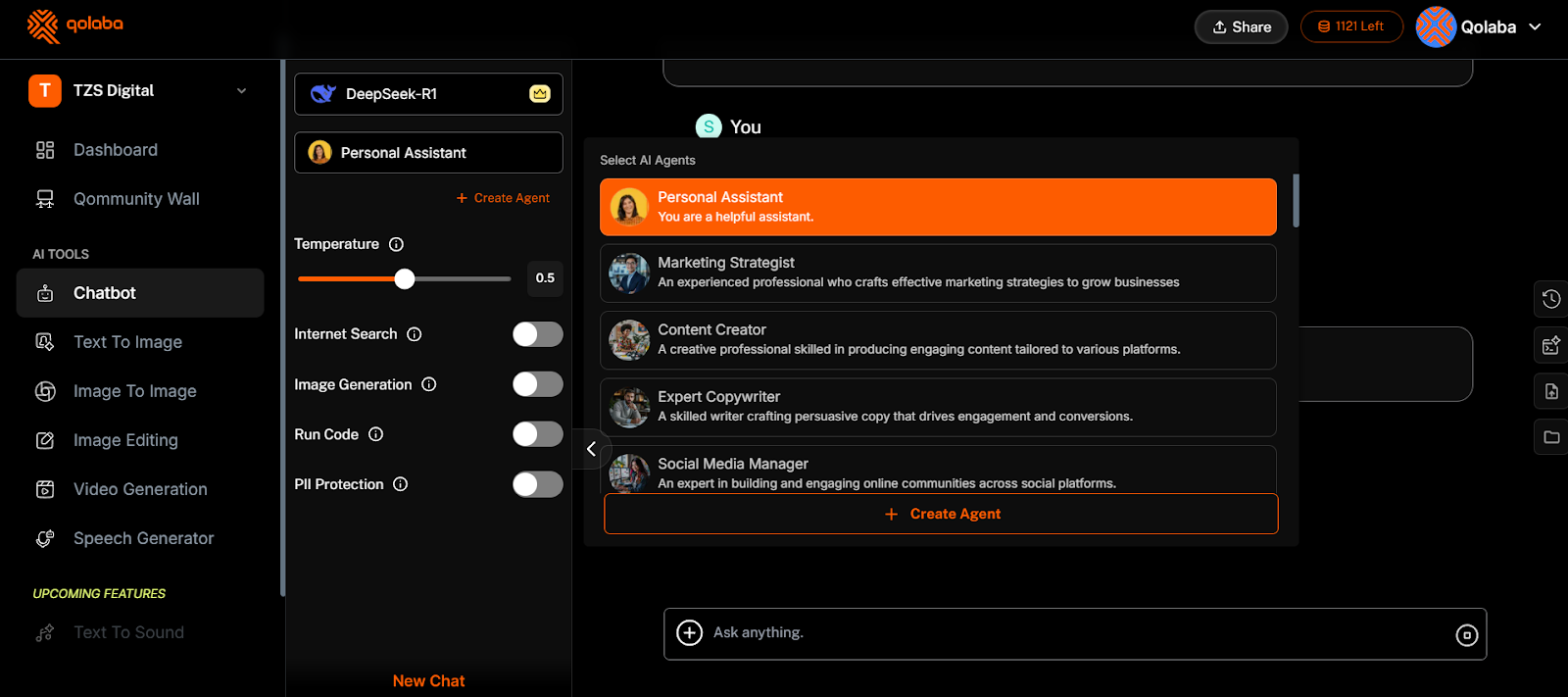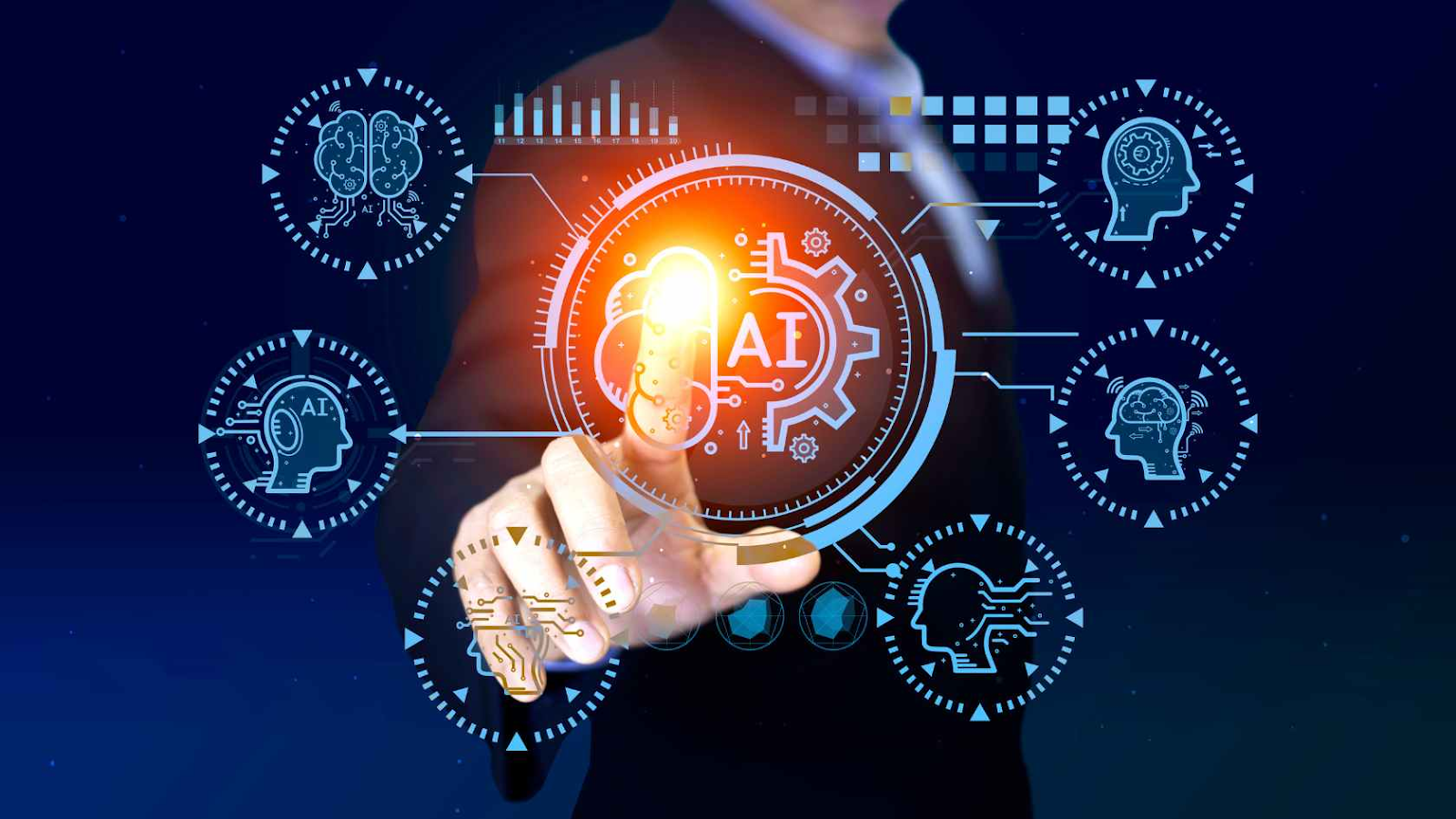Introduction
AI agents are rapidly transforming industries, automating tasks, and streamlining workflows. From content creation to customer support, these intelligent systems are becoming indispensable. But what exactly are AI agents? How do they work? And most importantly, how can you use them to your advantage?
In this guide, we’ll break down everything you need to know about AI agents—from their core components to real-world applications and future trends.
What is an AI Agent?
An AI agent is a software program powered by artificial intelligence that can autonomously perceive its environment, make decisions, and take actions to achieve specific goals with minimal human intervention. Unlike traditional automation tools that follow rigid, pre-defined rules, AI agents are distinguished by their ability to adapt and learn from data, making them significantly more flexible and intelligent.
Example: Virtual assistants like Siri, Alexa, and Google Assistant are the earliest examples of AI agents. They process natural language queries, understand user intent based on context, make decisions about how to respond, and take actions like setting reminders, playing music, or providing information.

Why Are AI Agents Transforming Industries?
AI agents are revolutionizing industries due to their ability to handle complex tasks with minimal human intervention. According to Gartner, agentic AI is expected to solve 80% of customer service issues by 2029, leading to a 30% reduction in operational costs
These AI-driven solutions are already making a significant impact. A recent study by Ada CX highlights that AI isn’t the future, it’s already here. Businesses are deploying AI-driven assistants to improve response times and personalize customer interactions.
Here are the key ways AI agents are driving this industrial transformation:
- Efficiency Boost: AI agents reduce manual workload, allowing teams to focus on strategic tasks.
- 24/7 Availability: Unlike human workers, AI agents operate around the clock.
- Data-Driven Decisions: They analyze vast amounts of data in real time to make informed decisions.
- Cost Savings: Businesses leveraging AI agents report significant reductions in operational costs.
Who Can Benefit from AI Agents?
- Product Managers: AI agents help streamline workflows and improve product development.
- Content Creators: AI-powered tools assist in generating and optimizing digital content.
- Digital Marketers: AI agents enable targeted campaigns, automated social media posts, and audience engagement.
- Educators: AI-driven tools personalize learning experiences and automate administrative tasks.
- Sales Teams: AI agents can automate lead qualification, personalize sales pitches based on customer data, and provide valuable insights into customer behavior.
- Human Resources (HR): AI agents can streamline recruitment processes, automate onboarding tasks, manage employee inquiries through chatbots, and assist with performance management.
- Customer Support Teams: AI-powered chatbots and virtual assistants can provide instant support, answer frequently asked questions, route complex issues to human agents, and personalize customer interactions.
Understanding AI Agents
Definition of AI Agents: A Deep Dive
Think of an AI agent as a clever digital system that’s constantly observing its surroundings by gathering data like your questions and website activity. It then uses AI smarts – like technologies, including natural language processing (NLP), machine learning (ML), and deep learning, to understand patterns, extract meaning, and gain insights.
Based on this, it can take action and make decisions, often on its own! What makes it special? Unlike regular automation that just follows the same steps, AI agents learn and adapt, getting better at predicting what you need and offering personalized help.
Essentially, it’s like having a super-smart digital assistant that’s always learning and ready to lend a hand!
How AI Agents Differ from Traditional Automation Tools
| Feature | Traditional Automation | AI Agents |
|---|---|---|
| Learning Ability | Follows strict, predefined rules | Learns and improves through ML & NLP |
| Adaptability | Static; performs the same actions | Can adjust based on new data |
| Decision-Making | Reactive; follows “if-then” rules | Predictive and proactive |
| Human Intervention | Often requires human setup & tweaks | Can operate more autonomously |
| Language | Typically works with structured data | Can understand natural language. |
Core Components of an AI Agent
- Machine Learning Algorithms: AI agents continuously learn from new data.
- Natural Language Processing (NLP): Enables AI agents to understand and process human language.
- Data Integration: AI agents interact with multiple data sources to make informed decisions.
Types of AI Agents

Source: 7 Types of AI Agents to Streamline Your Workflow in 2025
Rule-Based AI Agents
- Follow pre-defined instructions.
- Used in basic customer service chatbots.
Machine Learning-Based AI Agents
- Adapt and learn from past data.
- Used in recommendation engines like Netflix or Spotify.
Generative AI Agents
- Create content such as text, images, and videos.
- Used in tools like ChatGPT, DALL·E, and MidJourney.
Autonomous vs. Assistive AI Agents
- Autonomous AI Agents: Work without human intervention (e.g., self-driving cars).
- Assistive AI Agents: Enhance human capabilities (e.g., AI-powered writing assistants).
How AI Agents Work
The Underlying Technologies
AI agents rely on:
- Natural Language Processing (NLP) for understanding text and speech.
- Machine Learning (ML) for pattern recognition and learning from data.
- Neural Networks for decision-making and automation.
AI Agents and Data Processing
- Process large datasets for improved accuracy.
- Continuously learn from new interactions.
Integrating AI Agents with Other Digital Tools
- Integrating AI agents with CRM software, marketing automation platforms, and analytics tools streamlines operations.
Building Your Own AI Agent
- No-Code AI Agents: Easy Tools for Beginners
Platforms like ChatGPT and Zapier allow users to create AI agents without programming knowledge.
- Low-Code AI Agents: Customization Without Deep Coding
AI tools like OpenAI API and Microsoft Power Automate provide flexibility for semi-technical users.
- Custom AI Agents: Full Control with Advanced Development
Organizations with technical expertise can develop custom AI solutions tailored to their needs.
AI Agents in Content Creation
- Automating Blog Writing and Social Media Posts: AI-powered tools like Jasper and Copy.ai help generate high-quality content efficiently.
- AI Agents for Video and Image Generation: Generative AI tools create visual content for marketing and branding purposes.
- Content Optimization and SEO Enhancement with AI: AI agents assist in keyword research, readability improvements, and search engine ranking optimization.
- AI-Powered Personalization: How AI Improves Engagement: Personalized recommendations and adaptive content boost user engagement and retention.
Case Study: By using AI to identify missing keywords and optimize their articles, Lyzr increased their organic traffic by 150% in just three months.
AI Agents in Task Management
- AI Assistants for Scheduling and Calendar Management: AI tools like Reclaim.ai automate scheduling, ensuring efficient time management.
- Automating Repetitive Workflows with AI: AI agents handle mundane tasks like email sorting and report generation.
- Smart AI Agents for Project Management and Collaboration: AI-powered project management tools optimize task delegation and workflow efficiency.
Case Study: Siemens experienced a 30% reduction in scheduling conflicts and a 25% improvement in on-time project delivery through AI adoption.
AI Agents in Customer Support
- Chatbots vs. AI Agents: While chatbots provide scripted responses, AI agents offer dynamic, context-aware interactions.
- 24/7 Customer Service with AI Agents: Businesses leverage AI agents to provide round-the-clock support, enhancing customer satisfaction.
- AI Agents for Personalized Customer Interactions: AI-driven personalization improves customer experiences by tailoring responses to user preferences.
Case Study: Sephora’s AI Chatbot enhances customer experience by offering product recommendations and virtual try-ons. The implementation of chatbots has reduced response times by 40% and increased customer satisfaction.
Benefits of AI Agents
- Time-Saving Capabilities: AI agents take over repetitive manual work, such as data entry and initial customer inquiries. This frees up valuable employee time to focus on more complex and strategic initiatives.
- Scalability: AI solutions can handle increased demand without needing proportional increases in staff, making them ideal for businesses experiencing growth or seasonal peaks. They ensure consistent service levels even during high-volume periods.
- Improved Efficiency and Accuracy: By automating processes, AI agents minimize human errors, leading to more accurate results and reduced rework. This also speeds up workflows, enhancing overall operational efficiency.
- Cost Savings for Businesses and Entrepreneurs: Automating tasks with AI reduces the need for extensive human labor, directly lowering operational costs. Improved efficiency and accuracy further contribute to a better return on investment
Challenges and Limitations of AI Agents
- Bias, Transparency, and Accountability: AI algorithms can inadvertently perpetuate biases present in their training data, leading to unfair or discriminatory outcomes. Ensuring transparency in how AI agents make decisions and establishing clear accountability for their actions are critical.
- Security and Privacy Risks with AI Agents: AI agents often handle sensitive data, making them potential targets for cyberattacks and raising concerns about data privacy. Robust security measures and adherence to privacy regulations are essential for responsible AI deployment.
- Technical Barriers: Understanding AI Limitations: Implementing and maintaining AI agents requires technical expertise, and understanding their limitations is crucial for setting realistic expectations. Continuous updates, monitoring, and occasional human intervention are often necessary to ensure optimal performance.
- Overcoming Adoption Resistance in Businesses: Employees may resist the adoption of AI due to fear of job displacement or lack of understanding of its benefits. Clear communication, comprehensive training, and showcasing successful use cases can help overcome this resistance.
How Qolaba’s AI Agents Can Help in Daily Tasks
Key Features of Qolaba’s AI Agents

AI-Powered Content Generation
- Craft platform-optimized content for blogs, social media, emails, and ads
- Maintain brand voice consistency across all outputs
- Generate multimedia content (text, visuals, scripts) in seconds
Smart Process Automation
- Automate repetitive tasks: data entry, scheduling, report generation
- Implement self-learning workflows that improve with usage
Hyper-Personalized Engagement
- Deliver real-time customer support via adaptive chatbots
- Create dynamic user journeys based on behavioral analytics
- Predict needs using advanced NLP and machine learning models
Getting Started with Qolaba: A Step-by-Step Guide
Implementation Made Simple – 4-Step Launch Process
- Instant Sign-Up- Create your enterprise account in <2 minutes
- Customization – Train the AI on your brand guidelines and workflows
- Integration – Connect to existing tools via API or no-code plugins
- Activation – Deploy pre-built templates or create custom automations
- 24/7 Support Ecosystem
- Dedicated onboarding specialists
- Interactive knowledge base with 500+ tutorials
- Real-time system health monitoring
Why Choose Qolaba?
“Qolaba Studio is an awesome platform for generating AI images with a simple, intuitive user interface. They also have a chatbot with GPT-4, Claude, and Mistral, which is great for analysis and social media.”
– Rafael (Project Manager)
Start Your AI Transformation Today
The Future of AI Agents

Source: The Future of AI in 2024: Trends and Developments
Trends in AI Agent Development
Future AI agents are expected to exhibit more advanced reasoning capabilities, improved natural language understanding, and the ability to handle more complex, multi-step tasks autonomously. Integration with other emerging technologies like IoT and blockchain is also anticipated.
The Role of AI Agents in the Future Workplace
AI agents are projected to become integral virtual assistants in the workplace, handling routine and data-intensive tasks to free up human employees for more creative, strategic, and interpersonal responsibilities. This will foster a more collaborative human-AI workforce.
Will AI Agents Replace Human Jobs?
While AI agents automate many tasks, the prevailing view is that they will primarily augment human capabilities rather than cause widespread job displacement. This shift will likely lead to the evolution of existing roles and the creation of new ones focused on managing and collaborating with AI.
Conclusion
So, what’s the takeaway? AI agents aren’t just a futuristic fantasy – they’re actively rewriting the rules across industries! From taking over tedious tasks to sparking creative content and crafting amazing customer experiences, these smart helpers are making a real impact.
For businesses, this means a chance to seriously boost your game – think faster workflows, lower costs, and the power to grow without the usual headaches.
Ready to dive in and see what AI agents can do for you? The future is intelligent, and it’s arriving right now!
FAQs
- What makes AI agents different from regular automation tools?
AI agents learn and adapt from data, making intelligent decisions, unlike rule-based automation that follows fixed steps.
- Can AI agents replace human workers?
While AI automates tasks, the prevailing view is that it will primarily augment human capabilities, leading to evolved roles.
- How can I create an AI agent without coding skills?
No-code platforms offer intuitive interfaces and pre-built components to design and deploy AI agent workflows.
- What industries benefit the most from AI agents?
Marketing, customer service, content creation, and task management see significant gains in efficiency and personalization.
- Are AI agents secure to use in businesses?
Implementing robust security measures and adhering to data privacy regulations are crucial for secure AI agent deployment





